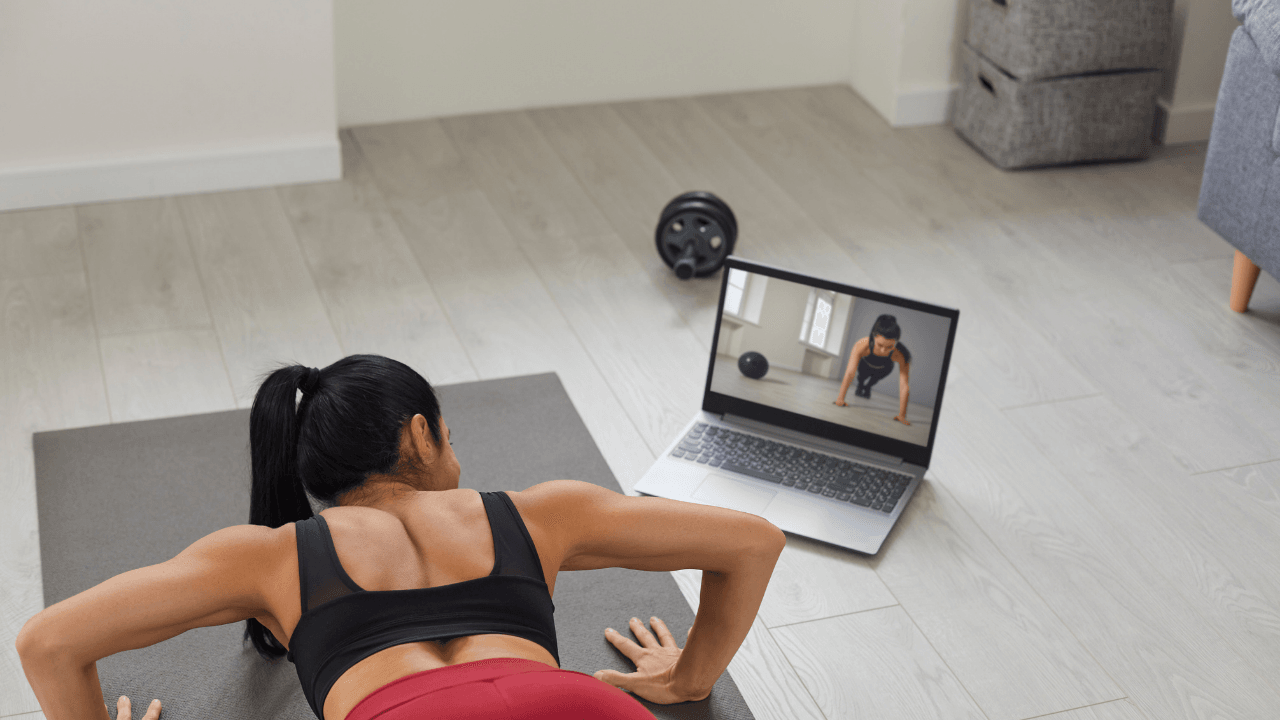
How to Naturally Relieve Muscle Soreness
If you want to naturally relieve muscle soreness, there are several effective options. Stretching, massage, rest, hydration, light exercise, heat therapy, and cold therapy can all help ease the discomfort and promote faster recovery.
Incorporating these methods into your routine is important. Stretching before and after exercise can help prevent muscle soreness. Massage can help improve blood flow and relax tight muscles. Rest is crucial to allow your body to heal and recover.
Hydration is also essential for muscle recovery. Drinking enough water helps flush out toxins and keeps your muscles hydrated. Light exercise, such as walking or gentle stretching, can increase blood flow and promote healing.
Heat therapy, such as using a heating pad or taking a warm bath, can help relax muscles and reduce soreness. Cold therapy, such as applying an ice pack or taking an ice bath, can help reduce inflammation and numb pain.
By incorporating these methods into your routine, you can help relieve muscle soreness naturally and promote faster recovery.
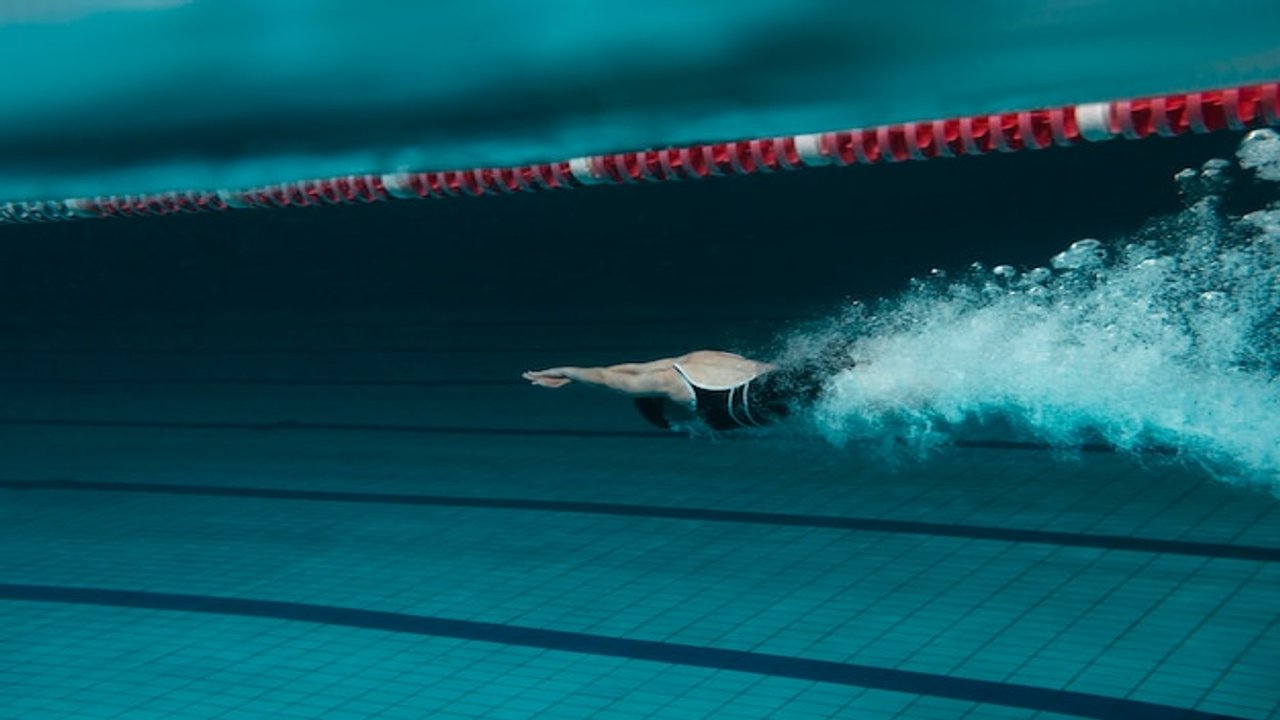
Key Takeaways
- Stretch major muscle groups for 30 seconds, 2-3 times, while avoiding bouncing and maintaining good posture
- Incorporate rest days into your routine for muscle recovery, along with proper nutrition and quality sleep
- Use deep tissue massage or self-massage techniques with a foam roller or massage ball to target tight and sore muscles
- Stay properly hydrated and maintain electrolyte balance, and consider using heat therapy or cold therapy to alleviate muscle soreness
Stretching
Stretching regularly can help alleviate muscle soreness and improve flexibility. It's essential to understand the proper technique to maximize the benefits and prevent injury. When stretching, focus on major muscle groups like the calves, thighs, hips, lower back, neck, and shoulders. Hold each stretch for 30 seconds and repeat each stretch 2-3 times. Avoid bouncing, as it can cause small tears in the muscle. Instead, ease into each stretch and breathe deeply. Proper technique also involves maintaining good posture and alignment during stretching to prevent unnecessary strain on the muscles.
Injury prevention is crucial when it comes to stretching. Always warm up your muscles before stretching by doing some light cardio or dynamic movements. This prepares your body for the stretches and reduces the risk of injury. Additionally, be mindful of any existing injuries or conditions that may affect your ability to stretch safely. If you feel any sharp pain while stretching, stop immediately to avoid causing further damage.
Massage
To alleviate muscle soreness naturally, consider incorporating regular massages into your recovery routine. Deep tissue massage is particularly effective for targeting tight and sore muscles. This type of massage focuses on realigning deeper layers of muscles and connective tissue, making it beneficial for alleviating chronic muscle tension.
If you can't schedule a professional massage, you can also practice self-massage techniques at home. Using a foam roller or massage ball, you can apply pressure to specific areas to help release muscle knots and tightness. When performing self-massage, it's important to start gently and gradually increase pressure as your muscles begin to relax.
Focus on areas that feel particularly tense or sore, and spend a few minutes on each muscle group. Remember to breathe deeply and relax into the massage to help your muscles release tension.

Incorporating regular deep tissue massages or self-massage techniques into your routine can help reduce muscle soreness and improve overall recovery after workouts.
Rest
Consider incorporating rest days into your routine to allow your muscles time to recover and repair after intense workouts. Rest is a crucial aspect of muscle recovery and overall fitness progress. When you push your body through tough workouts, it's essential to give it the time it needs to heal and grow stronger.
Proper nutrition and sleep quality play a significant role in this process. Make sure to fuel your body with the nutrients it needs to support muscle recovery. Protein, healthy fats, and complex carbohydrates are all essential for repairing and building muscle.
Additionally, prioritize getting enough sleep as it's during this time that your body goes into repair mode, helping to restore and strengthen your muscles. Aim for 7-9 hours of quality sleep each night to support your body's recovery process.
Hydration
To effectively support muscle recovery, ensure that you stay properly hydrated throughout your exercise regimen, as adequate hydration is essential for optimizing your body's repair processes. Maintaining a good level of hydration is crucial for your overall well-being and can significantly impact muscle soreness. Water consumption plays a vital role in flushing out toxins from your body, which can contribute to muscle soreness. It's recommended to drink water before, during, and after your workout to ensure that your muscles are adequately hydrated.

In addition to water consumption, maintaining electrolyte balance is equally important. Electrolytes, such as sodium, potassium, and magnesium, play a key role in muscle function and hydration. When you sweat during exercise, you lose electrolytes, and it's essential to replenish them to support muscle recovery and prevent soreness. Consuming electrolyte-rich beverages or incorporating electrolyte tablets into your water intake can help maintain the necessary balance.
Light Exercise
Maintaining a consistent routine of light exercise can help alleviate muscle soreness by promoting blood flow and reducing stiffness. When your muscles are sore, engaging in gentle exercise can actually aid in muscle recovery.
Light exercise, such as walking, swimming, or yoga, can help increase circulation, delivering more oxygen and nutrients to your muscles, which can speed up the healing process. Incorporating exercise techniques like gentle stretching or low-impact movements can also help to loosen tight, sore muscles and improve flexibility.
It's important to listen to your body and not overexert yourself, as this can lead to further muscle damage. Start with a gentle warm-up and gradually increase your activity level as your muscles begin to feel less sore. Remember, the goal is to promote healing, not to strain your muscles further.
Heat Therapy
After incorporating light exercise into your routine, you can enhance muscle recovery by utilizing heat therapy to further alleviate soreness and promote healing. Heat therapy, including the use of heat packs and hot showers, can be incredibly effective in easing muscle soreness.
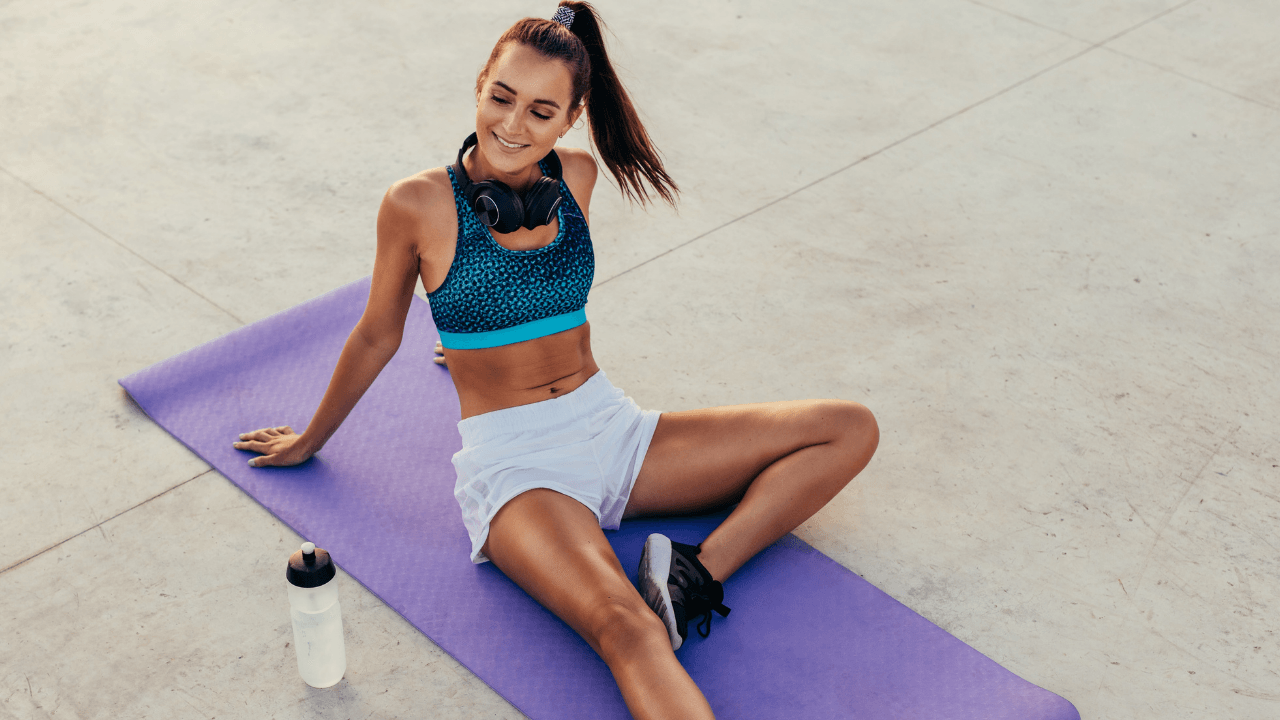
The application of heat helps to increase blood flow to the targeted area, which in turn delivers more oxygen and nutrients to the muscles, promoting faster healing and reducing stiffness.
Heat packs are a convenient and portable option for targeted muscle relief. Simply warm the heat pack according to the instructions and apply it to the affected area for 15-20 minutes. The warmth helps to soothe sore muscles and improve flexibility.
Additionally, taking a hot shower can also provide widespread relief for muscle soreness. The heat from the water helps to relax tense muscles and increase circulation throughout the body.
Incorporating heat therapy into your post-exercise routine can significantly aid in reducing muscle soreness, allowing you to recover more effectively and get back to your activities with greater comfort and ease.
Cold Therapy
Apply cold therapy to the sore muscles to reduce inflammation and numb the area, providing relief from muscle soreness. Cryotherapy benefits include decreasing blood flow to the affected area, which reduces inflammation and swelling. This can help alleviate muscle soreness and promote faster recovery.
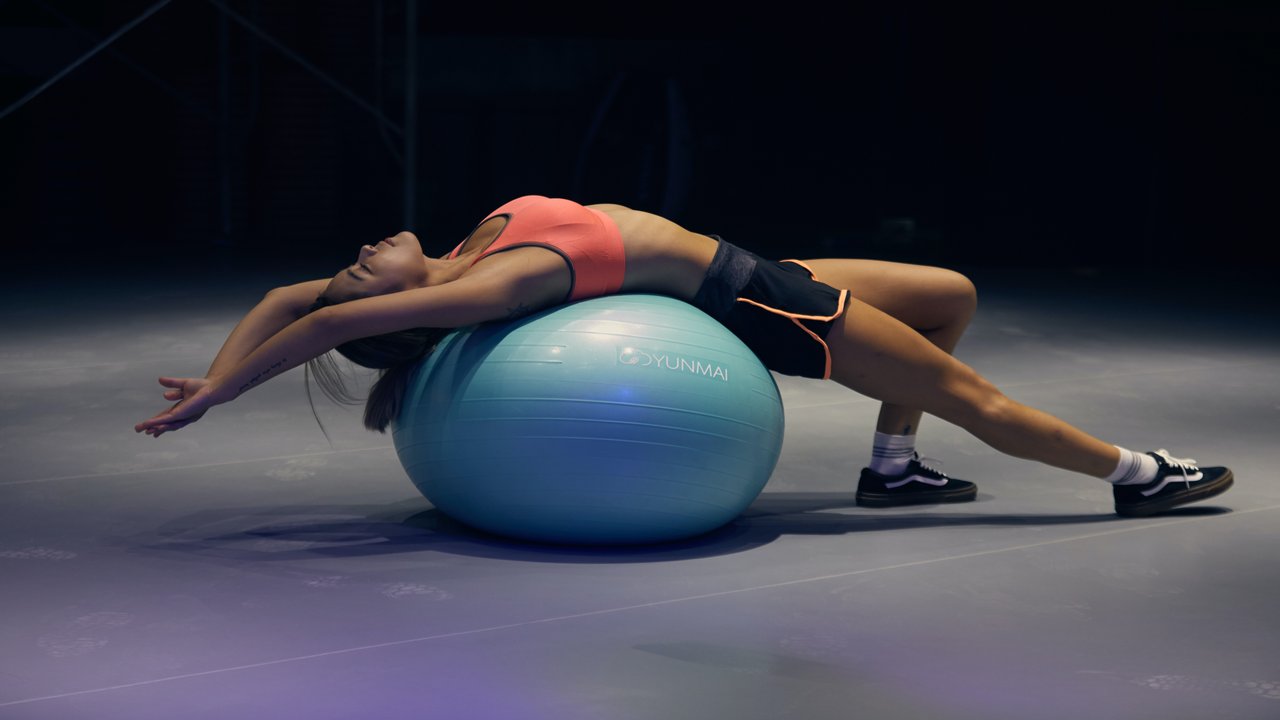
Cold therapy techniques can include using ice packs, cold compresses, or even taking a cold bath or shower. These methods can help constrict blood vessels, reduce the buildup of lactic acid, and decrease tissue damage, all of which contribute to muscle soreness.
When using cold therapy, it's important to remember not to apply ice directly to the skin, as it can cause ice burns. Instead, wrap the ice pack or cold compress in a towel before applying it to the sore muscles. Apply the cold therapy for about 15-20 minutes at a time, allowing the skin to return to its normal temperature before reapplying.
It's normal to feel some discomfort initially, but the numbing effect should provide relief from the muscle soreness. Incorporating cold therapy into your post-workout routine can be a simple and effective way to naturally relieve muscle soreness.
Frequently Asked Questions
Can Certain Foods or Supplements Help Alleviate Muscle Soreness?
Certain foods and supplements can indeed help alleviate muscle soreness. Foods rich in anti-inflammatory properties, like cherries and turmeric, can aid in reducing soreness.
Supplements like fish oil and magnesium may also be beneficial.
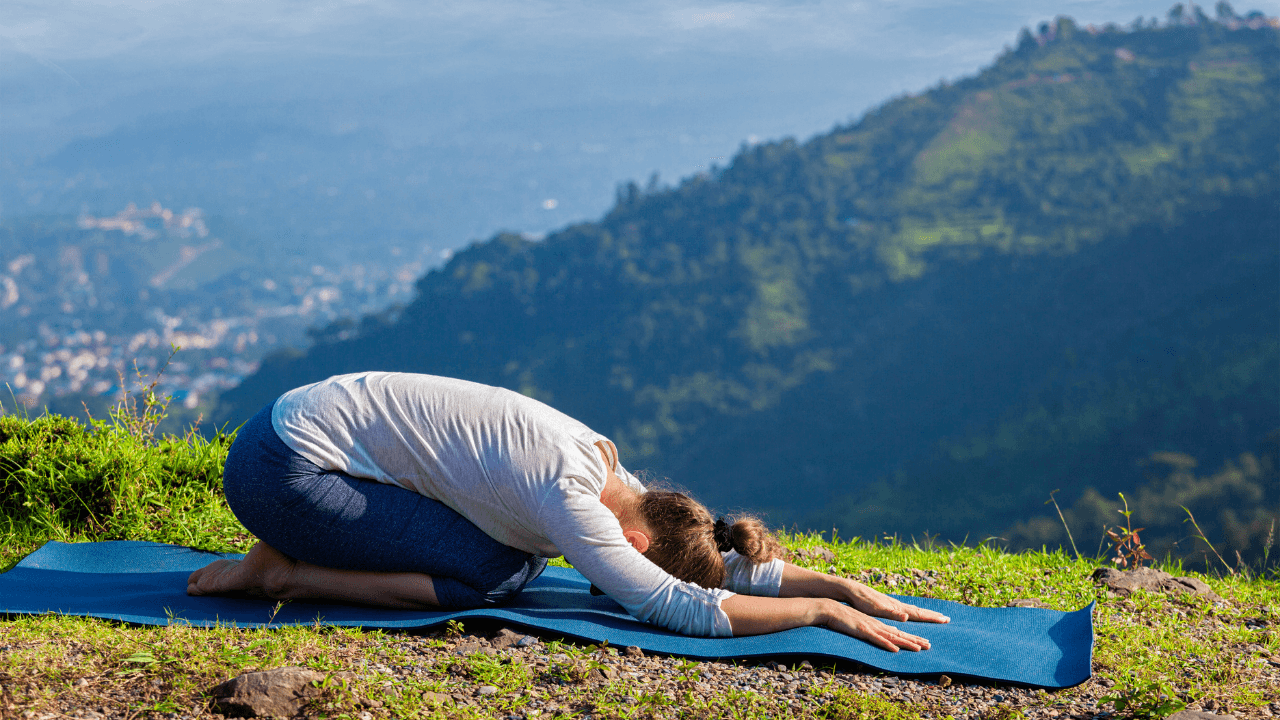
Additionally, consider incorporating yoga poses and exercises that target specific muscles to relieve soreness.
Remember to stay hydrated and get enough rest to support muscle recovery.
Are There Any Specific Yoga Poses or Movements That Can Target Sore Muscles?
To target sore muscles, try incorporating specific yoga stretches and recovery techniques into your routine.
Certain poses like child's pose, downward dog, and pigeon pose can help release tension and improve flexibility. Additionally, gentle movements like cat-cow stretches can also aid in relieving muscle soreness.
Remember to listen to your body and avoid overexertion. These techniques can be a natural and effective way to alleviate muscle discomfort.

Is There a Connection Between Muscle Soreness and Sleep Quality?
When it comes to sleep quality and exercise recovery, there's definitely a connection. Getting enough good quality sleep is crucial for muscle recovery after exercise. During sleep, your body repairs and rebuilds muscles, which can help reduce muscle soreness. So, prioritizing good sleep can have a positive impact on your exercise recovery and overall muscle soreness.
Making sure you get enough rest is an essential part of any workout routine.
How Does Stress or Mental Health Affect Muscle Soreness?
When it comes to stress or mental health affecting muscle soreness, the mind-body connection is powerful. Mental relaxation and relaxation techniques can help reduce physical tension, relieving muscle soreness.
When you're stressed, your muscles can become tense, leading to discomfort. Taking time to relax your mind and body through techniques like deep breathing, meditation, or yoga can help alleviate muscle soreness by promoting overall relaxation and reducing stress.
Are There Any Alternative Therapies, Such as Acupuncture or Foam Rolling, That Can Help With Muscle Soreness?
Feeling sore after a workout?
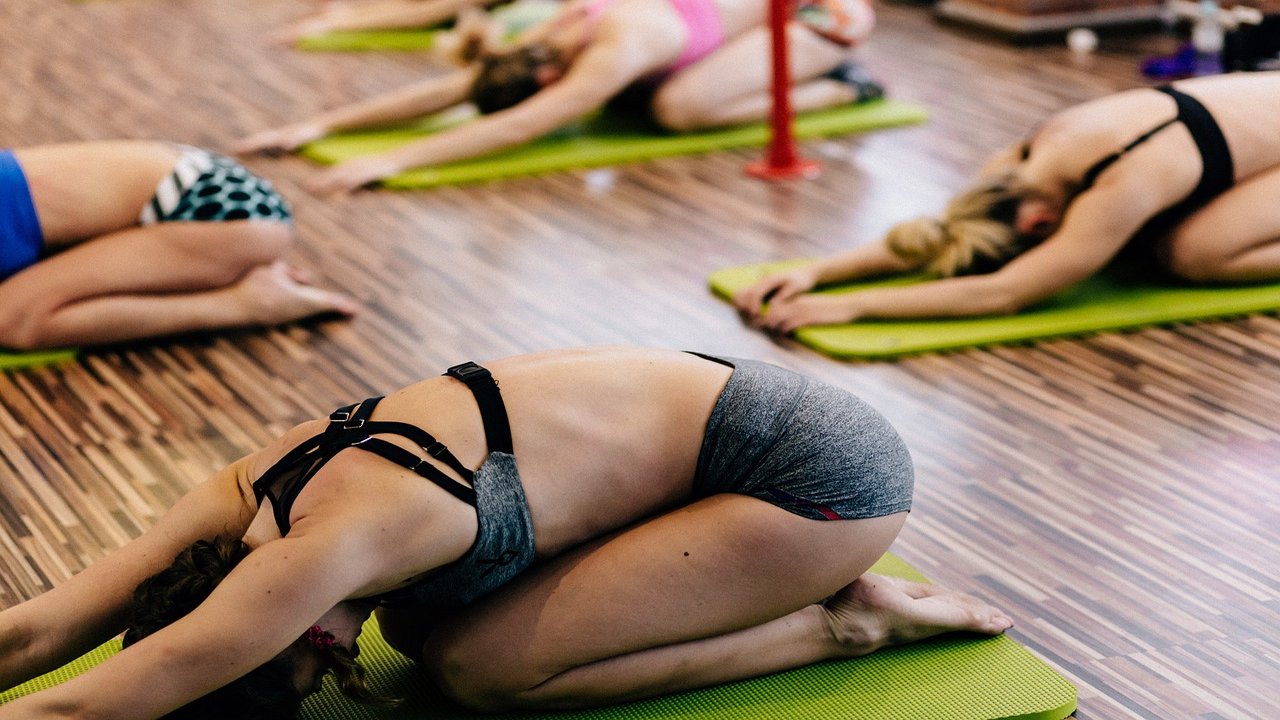
Acupuncture benefits may surprise you with its pain-relieving powers. Acupuncture works by stimulating nerves and increasing blood flow.
And don't overlook the foam rolling techniques—they're a game-changer for muscle soreness. Foam rolling helps release muscle tension.
Both acupuncture and foam rolling are great natural remedies to ease that post-workout discomfort.
Give them a try and feel the difference in your muscles!
Conclusion
So next time you're feeling a little tight and tender, remember to give your muscles some love. A little stretching, a bit of hydration, and maybe a light massage can work wonders.
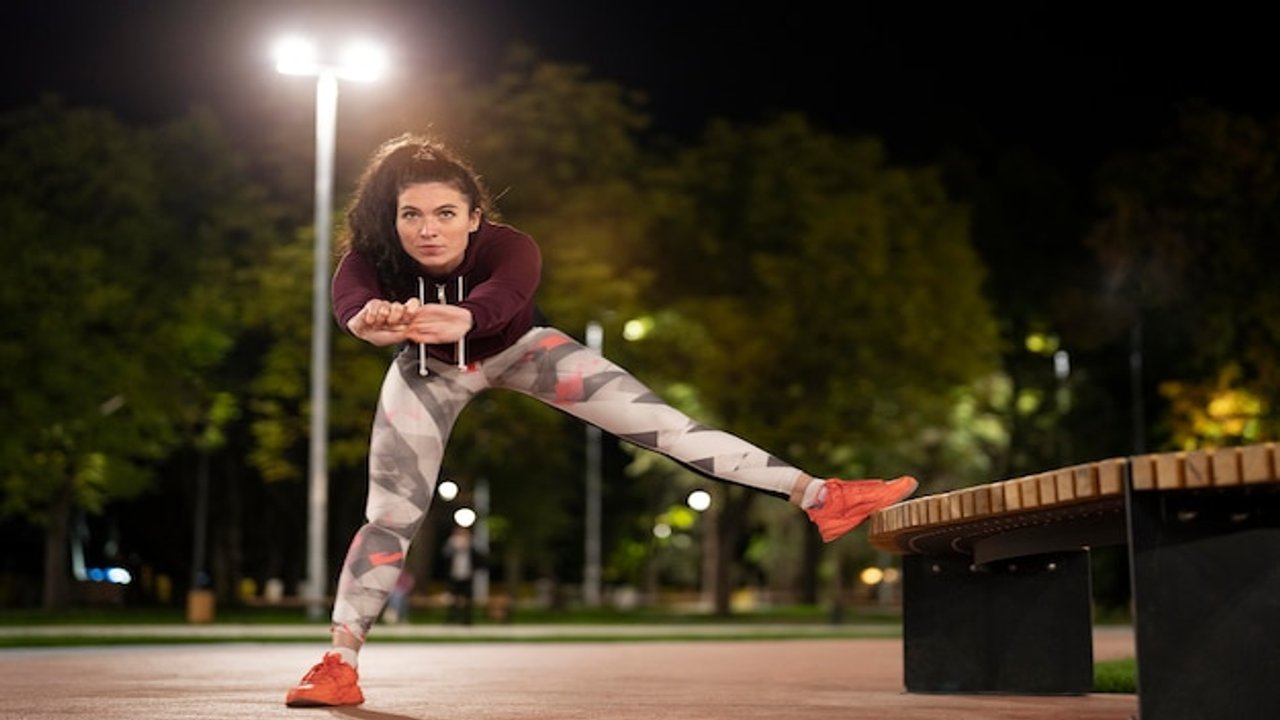
And if you're feeling really sore, don't be afraid to take a day off and just rest. Your body will thank you for it, and you'll be back on your feet in no time.
Take care of yourself, you deserve it.
Statistics
- A study found that taking omega-3 fatty acid supplements can reduce muscle soreness after intense exercise.
- Incorporating strength training exercises into your routine can enhance muscle strength and reduce post-exercise soreness.
- Getting enough rest and sleep is crucial for the body to repair and recover from muscle soreness.
- Muscle soreness can be naturally relieved through regular stretching and flexibility exercises.
- Practicing good posture throughout the day can help prevent muscle imbalances and reduce the likelihood of muscle soreness.
- Using natural remedies such as arnica or turmeric creams can help alleviate muscle soreness and inflammation.
- >Massages, whether done professionally or self-administered, can aid in relieving muscle soreness and promoting relaxation.
- Cold therapy, like ice packs or cold showers, can also provide relief by reducing inflammation and numbing the area.
- Practicing meditation and deep breathing exercises can help relax the muscles and reduce muscle soreness.
- Getting regular sports massages can help prevent and alleviate muscle soreness in athletes.
External Links
- Prevention - Prevention shares DIY muscle soak bath salt recipes that can help soothe sore muscles.
- Health - Health.com provides advice on how to prevent muscle soreness through proper warm-up, cool-down, and recovery techniques.
- Verywell Fit - Verywell Fit offers self-massage techniques that can be used to alleviate muscle soreness in runners.
- Shape - Shape offers various ways to relieve sore muscles naturally, including stretching and foam rolling.
- National Institutes of Health - This study from the National Institutes of Health explores the effects of massage therapy on reducing muscle soreness.
- Healthline - Healthline provides a list of 15 inflammation-fighting foods that can help with muscle soreness.
- Runner's World - Runner's World shares a list of foods that can aid in muscle recovery and reduce soreness.
- Harvard Health Publishing - Harvard Health Publishing offers tips and techniques to ease sore muscles naturally.
- SELF - SELF explains how certain essential oils can be used to soothe sore muscles.
- Verywell Health - Verywell Health discusses the benefits of massage in relieving muscle pain and soreness.
How To
How to Maintain Proper Posture to Prevent Muscle Soreness
Maintaining proper posture throughout the day is crucial for preventing muscle soreness. When sitting, make sure your feet are flat on the ground, your back is straight, and your shoulders are relaxed. Avoid slouching or rounding your shoulders. When standing, distribute your weight evenly between both feet and engage your core muscles to support your spine. Keep your head aligned with your spine, and avoid tilting or forward-leaning positions. Investing in an ergonomic chair or standing desk can also help promote good posture. By maintaining proper posture, you reduce the strain on your muscles and prevent muscle imbalances that can contribute to soreness. Practice mindfulness and take periodic breaks to check and correct your posture throughout the day.
 HealthWellnessFitnessBeautyVideosPrivacy PolicyTerms And Conditions
HealthWellnessFitnessBeautyVideosPrivacy PolicyTerms And Conditions
